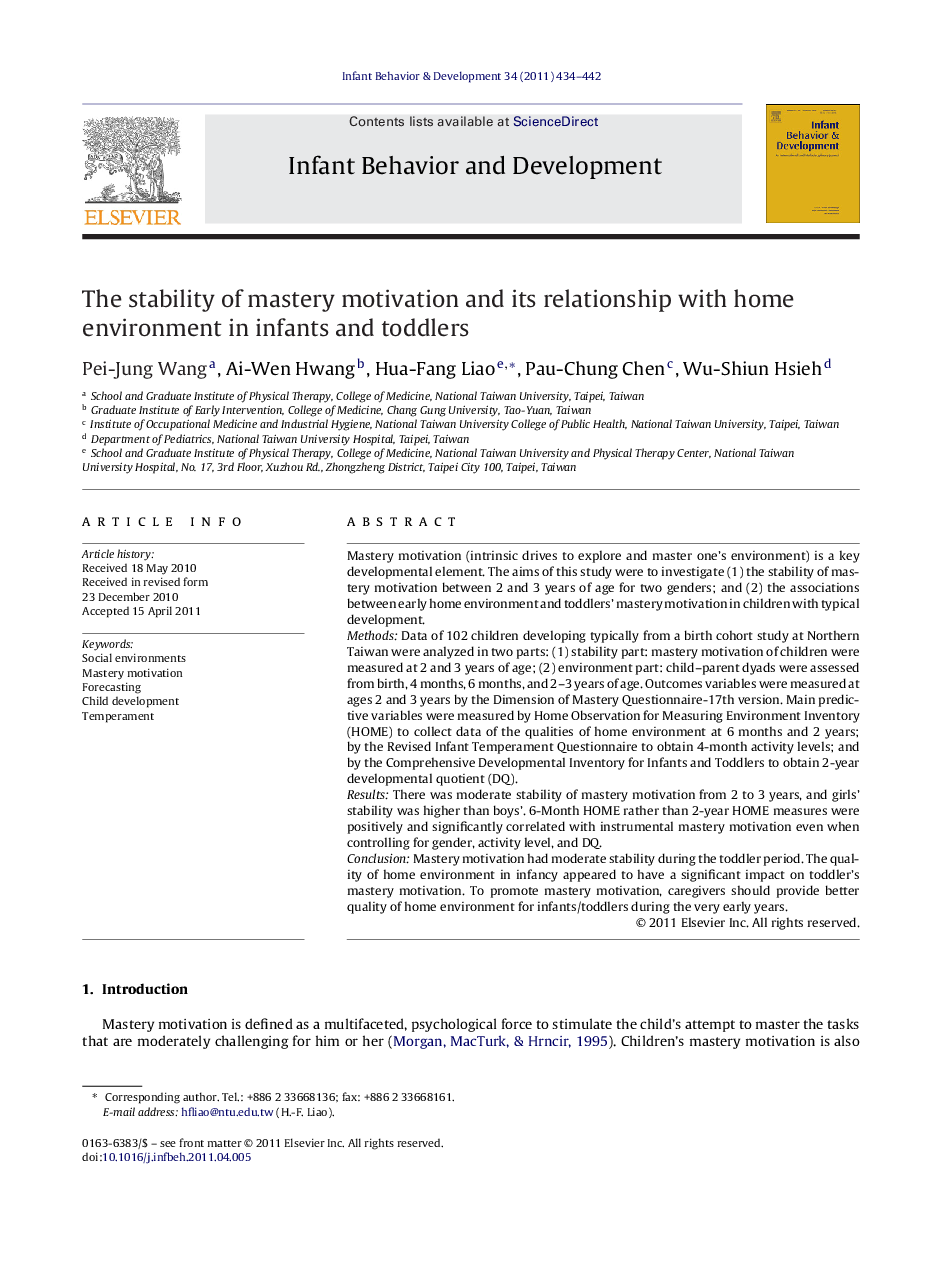| Article ID | Journal | Published Year | Pages | File Type |
|---|---|---|---|---|
| 917318 | Infant Behavior and Development | 2011 | 9 Pages |
Mastery motivation (intrinsic drives to explore and master one's environment) is a key developmental element. The aims of this study were to investigate (1) the stability of mastery motivation between 2 and 3 years of age for two genders; and (2) the associations between early home environment and toddlers’ mastery motivation in children with typical development.MethodsData of 102 children developing typically from a birth cohort study at Northern Taiwan were analyzed in two parts: (1) stability part: mastery motivation of children were measured at 2 and 3 years of age; (2) environment part: child–parent dyads were assessed from birth, 4 months, 6 months, and 2–3 years of age. Outcomes variables were measured at ages 2 and 3 years by the Dimension of Mastery Questionnaire-17th version. Main predictive variables were measured by Home Observation for Measuring Environment Inventory (HOME) to collect data of the qualities of home environment at 6 months and 2 years; by the Revised Infant Temperament Questionnaire to obtain 4-month activity levels; and by the Comprehensive Developmental Inventory for Infants and Toddlers to obtain 2-year developmental quotient (DQ).ResultsThere was moderate stability of mastery motivation from 2 to 3 years, and girls’ stability was higher than boys’. 6-Month HOME rather than 2-year HOME measures were positively and significantly correlated with instrumental mastery motivation even when controlling for gender, activity level, and DQ.ConclusionMastery motivation had moderate stability during the toddler period. The quality of home environment in infancy appeared to have a significant impact on toddler's mastery motivation. To promote mastery motivation, caregivers should provide better quality of home environment for infants/toddlers during the very early years.
► Mastery motivation (drives to master environment) is a key developmental element. ► There was moderate stability of mastery motivation from 2- to 3-year-of-age. ► The 6-month HOME was correlated with mastery motivation, not the 2-year HOME. ► Home environment in infancy is important for the development of mastery motivation.
